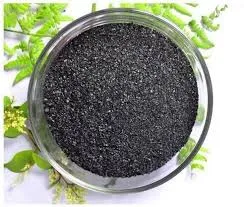Introduction
Humic acid, a natural organic substance derived from decomposed plant and animal matter, is proving to be a game-changer in modern agriculture. In this article, we delve into the world of humic acid and its profound impact on soil health and plant growth. We also introduce you to the foremost humic acid supplier in Jhabua, empowering local farmers with innovative solutions for sustainable cultivation.
Understanding Humic Acid: Nature’s Soil Enhancer
Composition and Formation
Humic acid is formed through the decomposition of organic matter over time, resulting in a rich concentration of carbon and other essential elements.
Role in Soil Health
It plays a crucial role in enhancing soil structure, water retention, and nutrient availability, contributing to overall soil health.
Types of Humic Acid
There are two main types of humic acid: humic acid and fulvic acid, each with distinct benefits for plant growth.
The Impact of Humic Acid on Plant Growth
Nutrient Chelation
Humic acid chelates essential nutrients, making them more accessible to plants and preventing nutrient lock-up.
Root Development
It stimulates root growth and branching, leading to better nutrient absorption and stronger plants.
Stress Mitigation
Humic acid aids in stress resistance by improving a plant’s ability to withstand environmental challenges like drought and disease.
Introducing the Leading Humic Acid Supplier in Jhabua
Jhabua Agri Solutions: Your Reliable Partner
Jhabua Agri Solutions is a renowned supplier of high-quality humic acid products, dedicated to promoting sustainable agriculture.
Tailored Solutions
They offer customized humic acid formulations that cater to specific soil types and crop requirements, ensuring optimal results.
Expert Guidance
Jhabua Agri Solutions provides valuable guidance on the proper application of humic acid for different crops and growth stages.
Revolutionizing Agriculture with Humic Acid
Eco-Friendly Farming
The use of humic acid aligns with eco-friendly farming practices, reducing the need for synthetic fertilizers.
Improved Nutrient Retention
Humic acid improves soil’s cation exchange capacity, leading to better nutrient retention and utilization by plants.
Enhanced Water Efficiency
It enhances water-holding capacity, reducing water wastage and contributing to sustainable water management.
Conclusion: Elevating Agriculture with Humic Acid
In the journey toward sustainable agriculture, humic acid emerges as a powerful tool that enhances soil fertility, nutrient availability, and plant growth.
Frequently Asked Questions
- Is humic acid safe for all types of crops? Yes, humic acid is suitable for a wide range of crops, from fruits and vegetables to grains and ornamental plants.
- Can humic acid be used in hydroponic systems? Absolutely, humic acid can be adapted for hydroponic cultivation, improving nutrient uptake.
- Does humic acid improve soil’s water-holding capacity? Yes, humic acid enhances water retention in soil, reducing the need for frequent irrigation.
- Is humic acid compatible with other fertilizers? Yes, humic acid can be used alongside other fertilizers to enhance their effectiveness and nutrient availability.
- Is humic acid safe for organic farming practices? Certainly, humic acid is a natural substance and aligns well with organic farming principles.




